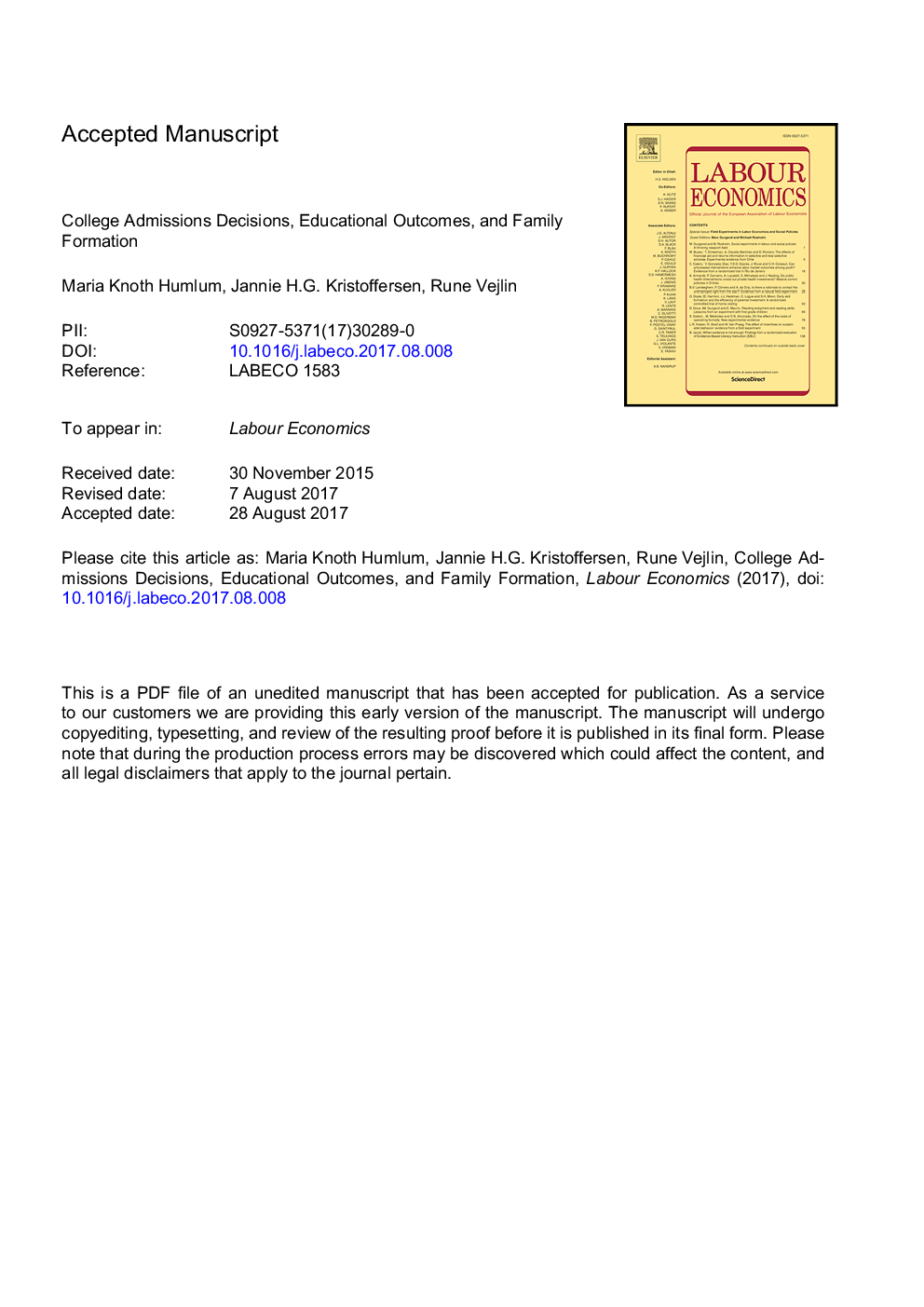| Article ID | Journal | Published Year | Pages | File Type |
|---|---|---|---|---|
| 5102050 | Labour Economics | 2017 | 52 Pages |
Abstract
The level of progression of an individual's educational or labor market career is a potentially important factor for family formation decisions. We analyze the relationship between the timing of college enrollment, educational outcomes, and the timing of family formation decisions in early adulthood. We use variation in college admission requirements to shed light on this issue. We employ a regression discontinuity design to estimate the effects of being above the admission requirement for one's preferred college program on college enrollment decisions and the timing of family formation. Based on the analysis on enrollment and auxiliary analyses on labor market participation and earnings, we find that being above the admission requirement mainly affects the timing of college enrollment and not the college-going decision. Being above the admission requirement speeds up college enrollment, college completion and labor market entry. We find that being above the admission requirement has substantial effects on the timing of family formation, for example being above the admission requirement increases the number of children 8 years after year of application by about 0.1 corresponding to an increase of about 40 percent. Our results suggest that career postponements such as delays in the educational system can have large effects on family decision-making.
Related Topics
Social Sciences and Humanities
Economics, Econometrics and Finance
Economics and Econometrics
Authors
Maria Knoth Humlum, Jannie H.G. Kristoffersen, Rune Vejlin,
